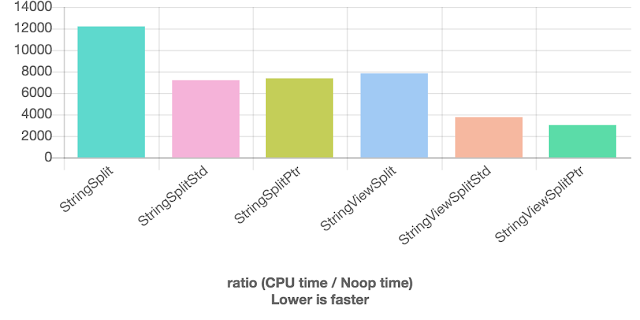Inlining is important for C++ performance, but the compiler must be careful not to increase the code size too much. GCC’s inlining process is basically inlining functions sorted by priority until a growth percentage limit is hit (or until all relevant functions have been inlined), which works fine for large translation units where the parts of the code not helped by inlining can compensate for the code increase in the parts where inlining helps. But it works less well for small translating units that need much inlining, which is common when doing microbenchmarks.
Take for example this quick-bench benchmark from Bartlomiej Filipek’s blog post “Speeding Up
string_view String Split Implementation” that measures the performance for different ways of splitting a string.
We can see that
We get a different result if we run the benchmark with a different set of functions. For example, removing
StringSplitStd is about 9% faster than StringViewSplit (they have the score 7829 and 7189), but the reason for this difference is that GCC has inlined everything for StringSplitStd, but not for StringViewSplit.We get a different result if we run the benchmark with a different set of functions. For example, removing
StringViewSplitStd and StringViewSplitPtr from the benchmark makes the compiler make different inlining decisions, and we get the same performance for both StringSplitStd and StringViewSplit (quick-bench).
It is a good idea when doing microbenchmarking to check that the compiler makes the same inlining decisions as when the code is used in a real use case (in a realistically sized translation unit).

